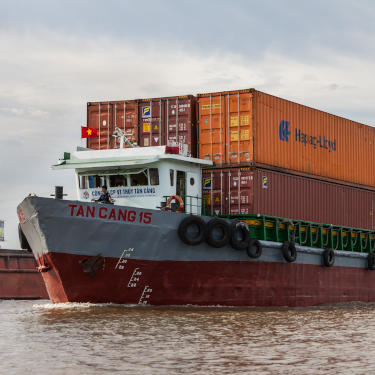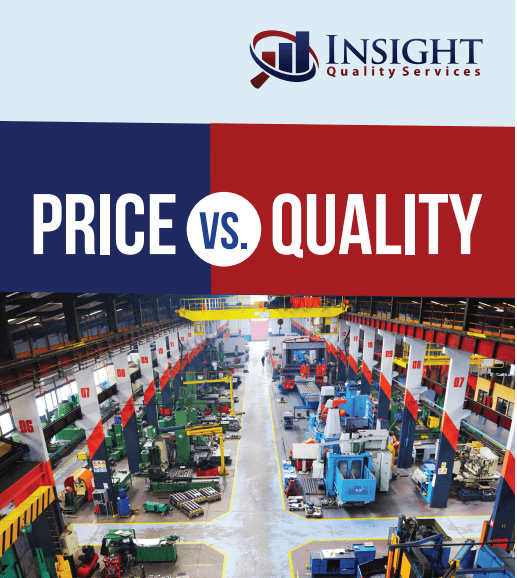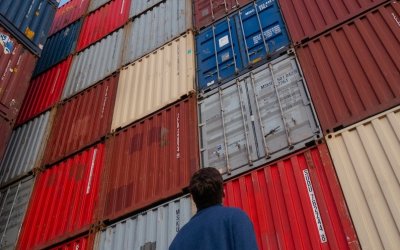Since the U.S.-China trade war started in early 2018, many importers in America and elsewhere have been re-examining their supply chains and considering moves to other countries.
One of the biggest beneficiaries of the trade war has been Vietnam. The country has seen a major increase in interest from importers.
In fact, according to data from the U.S. Census Bureau, imports from the country into the U.S. grew 33% year over year during the first half of 2019.
So, you may be wondering, does it make sense to look for alternative sources in Vietnam?
The answer is that it depends on a number of different factors, the first factor being the type of products you are importing.
Consider the Product Categories That Vietnamese Factories are Most Prepared to Serve
When comparing China and Vietnam, it’s important to keep in mind that China serves a broader range of product categories very effectively.

Textiles are a very developed product category in Vietnam
While you can probably find a factory for any type of product in Vietnam, it’s a good idea to consider the industries where the country has a specialization.
In 2017, Vietnam exported $220B worth of goods, and of those, the largest categories were:
- Broadcasting Equipment ($30.7B)
- Telephones ($14.9B)
- Integrated Circuits ($14.6B)
- Textile Footwear ($9.49B)
- Leather Footwear ($6.06B)
Other notable categories include:
- Seats and other furniture
- Coats, suits, and sweaters
- Coffee, nuts, and rice
Vietnam has a fairly diverse range of manufacturers, but the industries above are more developed.
It’s more likely that you’ll find a supplier that can produce to the quality level you want if you are sticking to these categories.
But when comparing China and Vietnam, you should also consider the differences in the infrastructure.
Understand the Differences in Infrastructure Between China and Vietnam
It’s worth noting that China’s transport infrastructure is highly developed and many importers have grown accustomed to this.
According to the World Economic Forum’s Global Competitiveness Report, China ranks 21st in the world for transport infrastructure.
This is comparable to countries like Australia, Denmark, and Sweden.
Meanwhile, Vietnam ranks 64th on the list of 137 countries, comparable to Kenya, Brunei Darussalam, and Brazil.
This means that the quality of available roads, railroads, and ports is much less developed in Vietnam.
As such, lead times might end up being longer and you are more likely to face shipment delays, especially as demands on these systems increase.
World Bank estimates that “Meeting Vietnam’s sustainable infrastructure needs will require investments of up to US$25 billion per year,” and, “Financing needs of such magnitude cannot be borne by the public sector alone.”
To deal with this, Vietnam is pursuing a PPP (Public-Private Partnership) model and does seem to have ambitious plans for its infrastructure development going forward.
But another important consideration is the capacity of factories in Vietnam.
Recognize That Vietnam’s Current Popularity is Pushing Factory Capacities
As we’ve already mentioned, Vietnam is one of the biggest beneficiaries of the trade war.

Vietnam’s ports are undoubtedly seeing increased container traffic (Credit: Diego Delso, http://delso.photo)
With each escalation of the economic conflict, more and more importers seem to want to move their production out of China and into Vietnam.
In discussions with our customers, we’ve noticed that companies who decided to move production after the very first tariff announcements in 2018 have had quite positive experiences.
They moved to supplement their existing production at a time when factories were not as overwhelmed with inquiries.
However, there are other customers we’ve spoken to that have been trying to make similar moves in 2019.
They’ve seen a lack of responsiveness on the part of the manufacturers as well as missed milestones.
This is because many factories in Vietnam are now at capacity.
As such, buyers looking to move any production to Vietnam need to be realistic about the fact that this move will take time.
In general, moving production out of China or even just from one supplier to another is not something that happens overnight.
Summary: Vietnam is a Good Option, But There are Some Things to Consider
If you are thinking about moving any amount of production from China to Vietnam, there are some key things to consider.
The first is that Vietnam’s biggest specializations are in product categories like electronics, textiles, and furniture.
If your products fall into one of these key focus areas, this is a positive.
The second thing to note is that Vietnam’s infrastructure is less developed than China’s. As such, you should expect that you are more likely to experience shipment delays.
The third is that many of Vietnam’s factories are now being pushed closer to capacity.
This means that any change in suppliers is likely to take significantly longer than you may be expecting.
Remember that moving to a new supplier is not something that should be rushed, as rushing can lead to negative impacts on quality.
You should consider conducting a capability audit or quality audit at any new supplier you are serious about working with.
And you should aim to strike an appropriate balance between price and quality.
For more information about how to do this, we recommend the following white paper.
Price vs. Quality: What You Need to Know
When you’re making products to sell in the marketplace, you have to consider the tradeoffs between price and quality. Sometimes, producing better quality products can lead to paying a higher price for manufacturing.
Download our free white paper, Price vs. Quality, to learn how to produce great quality while keeping your costs low.





0 Comments